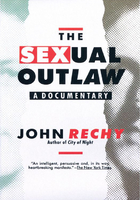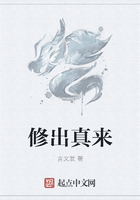SE?OR FRITZ KOLBE
Madrid, September 1935
It was ten in the morning in Madrid, and the city was bathed in the soft light of late summer. After eating his breakfast while reading the papers, Ernst Kocherthaler left home and headed for the German embassy. It was some distance, about three quarters of an hour away, but Kocherthaler walked quickly. As he walked beneath the locust trees, passing in front of still-deserted cafés, he could not stop thinking about the article he had just read in ABC: "Nuremberg, 15 September 1935: The National Socialist Party is going to pass several laws depriving Jews of full German citizenship. One planned law provides that marriages between Jews and German citizens will be prohibited. Extramarital relations between Jews and German citizens will also be prohibited." Phrases like "protection of German blood and German honor," and "survival of the German people" were repellent to Kocherthaler. He was extremely tense when he reached the embassy. He had the slight consolation that he did not yet have to see the swastika hanging in front of the building. The fa?ade still displayed the traditional flag of the Reich (black, red, and white), but not for much longer. The Nazi Party had just decided in Nuremberg that its emblem would become the flag of the entire nation.
At the entrance, he asked for the consular service. His papers were not even checked, since he was known as a friend of Count Johannes von Welczeck, the ambassador. Count von Welczeck and Ernst Kocherthaler met often, publicly and privately. Sometimes they even spent summer vacations together, in San Sebastian, Biarritz, or Hendaye. The ambassador lobbied the Spanish authorities in support of his friend's investment proposals and liked to talk with him about economics, politics, and business. Kocherthaler owned shares in the copper mines of Andalusia and handled major energy concerns. He represented the interests of large hydrocarbon companies in Spain and was the co-president of the national federation of oil traders. Kocherthaler knew many people and was one of the most prominent figures in the Spanish capital.
Kocherthaler was led through the high-ceilinged corridors of the palace, a beautiful building that had been the Prussian embassy in the nineteenth century, to the visa and passport office in the consular section. He was shown to a seat in a waiting room, next to a little table with newspapers on it. There were a few copies of the Frankfurter Zeitung, still a relatively respectable paper, and certainly less painful to read than the V?lkischer Beobachter, also available for visitors, along with various pamphlets by Joseph Goebbels. "How can Welczeck allow this propaganda in the embassy?" thought Kocherthaler, who, despite his personal friendship with the ambassador, resented him for giving in to the dictates of the Nazi Party.
By May 1933, all German diplomatic offices abroad had received a detailed document from Berlin designed to answer questions about the fate of Jews in Germany. German diplomats in Madrid had been seen at evening receptions launching into long arguments on the "Jewish question," explaining the specifically German concerns involved, and trying to put together arguments about its "universal character." The party and its ideas were infiltrating everywhere, including the German-Spanish Chamber of Commerce, where, as a non-Aryan businessman, Kocherthaler was already no longer welcome.
Leafing through the paper, Kocherthaler lifted his head and looked around. He saw an old engraving of the Brandenburg Gate. There was also a poster of the "Strength through Joy" organization, depicting two young blond women sitting on the white sand of a Baltic beach. The picture reminded him of Rügen Island, where he had spent all his childhood summers. Finally, there was a portrait of the führer with a little girl giving him a huge bouquet of flowers.
The door of the office facing him opened a few minutes later. A short official, only about five feet three inches tall, appeared in the doorway. He had a round face with prominent ears. His bald crown was as smooth as his perfectly polished shoes. The man did not have a typically German appearance, looking more like a Slav or someone from southern Europe. He was soberly but elegantly dressed. The tone of his voice was clear, and his elocution as distinct as the text of a Prussian law. His general appearance was quite pleasant, and he seemed to have a certain charm.
"What can I do for you, Mr. Kocherthaler?" he asked, pointing to a chair. Kocherthaler remained standing. The consular agent, much shorter than his visitor, was forced to look up in order to talk to him. His politeness surprised Kocherthaler, who had noticed a certain decline in German good manners since the Nazi accession to power. Minor embassy officials, most of them already Nazi Party members, seemed to have taken advantage of the new state of affairs to adopt authoritarian airs or unwelcome and excessive familiarity. This man was different.
The businessman, still standing, spoke with the solemnity of an officer of the Imperial Guard: "I have come to take the necessary steps to renounce my German citizenship." Ernst Kocherthaler asked the official to inform the authorities in Berlin that he was withdrawing from the national community and that he had taken steps to become, immediately, a Spanish citizen. "This decision is irrevocable," he added after a brief pause, his eyes downcast and his voice slightly trembling with emotion.
A little taken aback by the tenor of the statement, the consular agent seemed not to understand. He asked the visitor to explain the reasons for his action. Kocherthaler mentioned the persecution of the Jews in Germany, the daily humiliations to which they were subjected, the boycotting of Jewish shops, the constant undercurrent of terror. "The Jews have been excluded from all professions and from all public places. The only thing they have left is their driver's licenses. This Germany is no longer mine!" said Kocherthaler.
The laws that had just been adopted in Nuremberg had finally convinced him: He could no longer be a citizen of a country in which he was relegated to second-class status. He himself had converted to Protestantism before 1914, but both his parents were Jewish, and his family tree was officially considered "impure." "I am a citizen of the Reich, and nothing else," he said, clenching his fists. He had volunteered during the war, and, he told the official now, he maintained his status as a reserve officer. The black, red, and white ribbon on his lapel indicated that he had received a distinguished war medal. "Did you fight? Do you know what it was like?" Kocherthaler asked.
The consular agent, a little surprised by the question, answered that he had been too young to fight, that he had not been recruited until the very last months of the war, into a Berlin battalion that had never been sent to the front. Ernst Kocherthaler had already been in his office for more than half an hour. In the waiting room, other visitors were growing restive. Among them was a young Spanish Falangist who wanted a visa for Germany, and who now made a noisy display of his impatience. But the businessman was in no hurry. He spoke of his love for Germany, that he had left well before the rise of National Socialism. "After the war," he recalled, "I understood that there was no longer a place for me in Germany. I was considered with contempt either as a nasty banker or a wicked Jew, or both at once."
After three-quarters of an hour, he handed his passport to the consular employee and asked him to tear it up. A few seconds went by. The passport remained on the table, an old one without a swastika. The silence, barely disturbed by noises from outside, became almost oppressive. Finally, the consular official spoke. "You should maintain your nationality," he said to his visitor in a decisive tone. "There may be a way of not giving up your status as a German citizen. Your war medal could be used as an argument. In any event, here the Nazis can do nothing against you. I'm going to find out what can be done…"
Ernst Kocherthaler sat down and discreetly wiped his forehead. "I have no greater desire than to remain German. But on condition that I can officially declare my opposition to National Socialism in a document that will have to be rapidly transmitted to the highest authorities in Berlin." The ambassador, he thought, would no doubt approve this step. How could he refuse to allow a friend to make this gesture?
The consular agent promised to deal with the matter swiftly and to keep him informed. The visitor stood and left his business card: Ernst Kocherthaler, Russian Petroleum Products Company, Madrid. The official rummaged for a few moments among the papers covering his desk-some of the documents written in French, the customary language of diplomacy-and handed him his card, on which could be read: Se?or Fritz Kolbe. Secretario de Cancilleria. Embajada de Alemania. Madrid.
Ernst Kocherthaler learned a few days later that the ambassador had not approved his action and had not transmitted his petition to Berlin. Deeply vexed, he renounced his German nationality, trying to persuade himself that the freedom of exile was better than domestic servitude. He silently reproached von Welczeck for not having the daring of Friedrich von Prittwitz und Gaffron, the German ambassador to Washington before 1933, the only German diplomat to resign on the Nazi accession to power. About his friend von Welczeck, he thought: "Not writing 'Heil Hitler!' at the bottom of your official correspondence does not make you part of the resistance."
Kocherthaler also thought again of the consular secretary who had received him. What a strange figure-Kolbe had not once used the slightest anti-Semitic expression. At one point, he had spoken of the "Nazis." No one used that epithet except opponents of the regime (its adherents would use the more dignified "National Socialists"). Kocherthaler found it strange that an obscure member of the embassy staff could openly show his distance from the party. The National Socialist Party (Nationalsozialistische Deutsche Arbeiterpartei, or NSDAP) recruited a substantial part of its troops from among second-level officials who, like Kolbe, had no university education. The others, the higher officials whom Kocherthaler knew well, tended to behave like nihilistic power elites, making fun of the Nazis while continuing to serve them.
Kocherthaler learned that Fritz Kolbe was the only official in the German embassy who had not joined the party. This information intrigued him, and he took the liberty of resuming contact with the chancellery secretary, curious to get to know this unusual man a little better.
Fritz Kolbe was surprised by this, since, having worked for several years on economic matters with the commercial counselor of the embassy, he knew Kocherthaler to be one of the most important people in the German community of Madrid. "Why would such an important personality want to see me? What can we possibly have to say to each other?" he wondered, after agreeing to a meeting the first Sunday in October at the Café Gijón on the Avenida de los Recoletos.
Madrid, October 1935
When the day came, Fritz Kolbe almost turned back before he reached the Café Gijón. He arrived a little early, sat on the terrace, set his white hat on his lap, and ordered a lemon granizado. Through the evening air drifted scents of mint and shellfish. The café was crowded that night, and the waiters were slow in filling orders.
Kocherthaler arrived, smiling, looking relaxed. The natural gentleness of his gaze and his warm handshake immediately put Kolbe at ease. He ordered a vermouth. After a few purely polite exchanges, the two men fell into an unexpectedly spontaneous rapport. Ernst Kocherthaler had ideas about everything and, it seemed, a broad experience of life. He spoke with ease, with a certain detachment, but without intimidating his companion. Even though Kocherthaler was involved in big business, Kolbe sensed that money was not the essential value for him. Kocherthaler was a cultivated man. He spoke of the Mediterranean as the "sacred cradle of our civilization" and regretted that the Germans "now want to separate themselves from it" by seeking nourishment for the national imagination in Nordic myths. "There was a time when Germany defended freedom of conscience and welcomed all the refugees of Europe…. All that is long in the past!" He thought that the world was divided between those who were ready for "deeds and sufferings and sacrifices" and those who were content "with eating and drinking, coffee and knitting, cards and radio music."
As he was talking, Kocherthaler wondered to which of the two categories Fritz Kolbe belonged: his external appearance was nondescript but he saw a certain spark in his gaze. Confessing his curiosity, he asked Fritz Kolbe why he had not joined the party. Some diplomats opposed to the regime, in high positions or not, had agreed to sign up in order not to be noticed and to avoid suspicion. Why not him?
Kolbe, who was not expecting to have to talk about this sensitive subject, tried to take refuge in banalities. "I'm only a minor official in the embassy," he said, going on to say that it seemed sufficient that he had sworn an oath of loyalty and obedience to Hitler like all agents of the state. The NSDAP already had more than two million members, "so one more or one less, what does it matter?" he added, reasoning a bit maliciously that perhaps he had not been considered reliable enough to join. Many officials had submitted applications for membership to the "Brown House" in Munich, which was automatically suspicious of diplomats.
Kocherthaler wanted to know more. He was well enough informed about his interlocutor to understand that he was a rebel, but was curious about his background, wondering how a modest German official could resist the attractions of National Socialism. For his part, Fritz Kolbe had never been asked to explain his attitude, though it had not developed overnight. He was flattered that someone was interested in him but embarrassed to dwell on his personal choices. He explained that the NSDAP attracted primarily dull minds and invoked the values that had been passed on to him by his father: the refusal to obey anyone blindly, loyalty to himself, and the love of freedom. To make his point, he quoted classic maxims, such as: "Always be loyal and true, until the cold grave," or: "For what is a man profited, if he shall gain the whole world, and lose his own soul?" Fritz Kolbe had learned this passage from Matthew from his mother's lips and had never forgotten it.
Ernst Kocherthaler did not accept these trite answers. He wanted to know whether Kolbe was anti-Nazi out of Christian conviction or because he had socialist or even communist sympathies. To put him at ease, he told Kolbe that he had many professional contacts with the Soviet Union and that he had had a "splendid" time there in 1931. Kolbe acknowledged that he had indeed been raised Christian, but that he was not a churchgoer or even a believer. "You have nothing against the Jews?" Kocherthaler asked him abruptly. "Why should I?" answered Kolbe. "For me, between an Aryan and a Jew, the only difference is that one of them eats kosher food and the other one doesn't."
As for communism, he had always had deep suspicion of indoctrination, though his belief in the traditional "Prussian virtues" of order, work, and discipline gave him a certain fellow-feeling for the socialists. Friedrich Kolbe, his father, had voted faithfully for the Social Democratic Party. He had been a saddle maker in Berlin and had always told his son to "do good" and "never fear the future."
The Kolbe family came from Pomerania in northeastern Germany, a traditionally Protestant region. The Pomeranians had the reputation of being simple people, as solid as country wardrobes, provincials who were always lightly mocked for their plattdeutsch dialect. The Kolbe family had been part of the great migration to Berlin after 1871. Millions of people from the borders of the empire had settled in the new capital of the Reich in the hope of finding work. Fritz Kolbe had inherited an unshakable drive for upward mobility.
It was in this spirit that his father had encouraged him to become a government official. In debt, like so many other small craftsmen, he had suffered the humiliation of having to close his workshop and had become a worker in an industrial factory. Rapid industrialization was marginalizing craftsmen. The army, the principal client for the leather industry, preferred large suppliers. Fritz's childhood neighborhood of Luisenstadt in Berlin had been full of barracks, and every morning he was awakened by military trumpets.
Of all the "Prussian virtues," blind respect for authority was the one that Fritz appreciated the least. "My father always told me that the principal defect of the Germans was their submissive spirit," he said. Of the few books he had been given to read as a child, he remembered particularly Michael Kohlhaas, the story of a rebel fighting to the death to obtain justice, which had made quite a mark on him.
Ernst Kocherthaler was beginning to get a better sense of Fritz Kolbe. This man, with his typical Berliner's caustic air, was hostile to all forms of authoritarian pomposity and display, Kocherthaler thought. In the course of the conversation, he was finally amused by Kolbe's adolescent side, the suppressed energy that showed itself in lively little gestures, his twinkling eyes, and a sometimes sharp tone. He often struck his left palm with his right fist. He seemed a determined person, not at all cerebral. Indeed, Fritz referred to himself as a "go-getter."
Feeling for his part that he could trust Ernst Kocherthaler, Kolbe took a few family photographs out of his wallet. He showed him a picture of his wife, Anita. She had a gentle face, with blue eyes and large sad lids. She had been suffering from pulmonary tuberculosis since 1933, which forced her to spend long periods in a sanatorium in Germany. A son, Peter, had been born in Madrid in April 1932. Kolbe told of meeting Anita in 1918, in a Berlin military hospital.
Another photo showed him in his 1918 soldier's uniform. He had belonged to an engineering battalion. The photo showed twenty other young men, and Kocherthaler noticed that they were all looking at the camera, except for one, who had his eyes fixed on an invisible spot in the distance. That was Fritz Kolbe.
In another, he could be seen doing calisthenics and wearing shorts. Kolbe was passionate about physical training. He did not smoke, drank very little, and got a lot of exercise-swimming, gymnastics, running-almost to the point of obsession. To celebrate the birth of his son he had run a marathon alone in a Madrid stadium.
The idea that one had to have a healthy body, live simply, and give priority to physical health was instilled in him during a formative childhood experience, his time in the Wandervogel. This German equivalent of the Boy Scouts was where, he said, he learned "the secret of a successful life," "inner truth." He told Kocherthaler now that his time with the Wandervogel had been one of great freedom.
Kocherthaler listened to this story with a puzzled look. This na?ve and generous overgrown boy scout seemed to him frankly a little foolish, and in the course of the conversation, he had caught an expression about "international high finance" that had sent a chill down his spine. Scouting, in Kocherthaler's mind, with its veneration of youth and v?lkisch ideology, seemed a precursor of the Hitler Youth.
Kolbe was taken aback by the suggestion that his passion for sports was comparable to the Nazi cult of the body and violence, and though some of his old friends had joined the Freikorps following the war, and some had even become "arrant Nazis," "others became communists," he pointed out.
Kolbe explained to Kocherthaler that the Wandervogel had enabled adolescents to escape from the burdens of prewar society: school, factory work, the army…. Even as a youth, he knew people were stifled under Wilhelm II and detested the bourgeois conformity and pompous militarism of the imperial age. He was fourteen when he joined, just at the outset of the First World War. During the war, he had not been in the trenches, but had wandered down forest paths and slept in hay barns. The events of the outside world had not much affected him. He was a patriot like everyone else, but he felt himself above all a member of the human race. For him, the war had represented the collapse of the present and the promise of a rebirth. This hope was soon buried when he saw the thousands of wounded men who returned from the front to populate Berlin with their ghostly presence. What he loved was nature, escape, harmony with everything alive, which had nothing to do with the Hitler Youth! With some hesitation, Ernst Kocherthaler accepted this explanation, although he remained a bit skeptical.
The Wandervogel had also introduced him to boys from different social backgrounds-the sons of teachers and lawyers from Steglitz and other wealthy Berlin neighborhoods-and taught him "to think for myself," explained Fritz.
One unforgettable moment of his life among the scouts was still fresh in his mind. In the winter of 1920, Fritz and his friends had gone cross-country skiing in the Harz Mountains. "We were following each other without speaking. In the snow, the silence among the trees was profound. Our little group was looking for its way, when a solitary skier came out of the edge of the forest." He was an Englishman. "A real gentleman in any case, a little older than we were, and who spoke perfect German," Fritz recalled. He had read the works of Baden-Powell and told the young Germans, who were dumbfounded, about the adventures of the great English "chief scout" in Afghanistan, India, and South Africa. He explained some techniques for survival in hostile terrain that Baden-Powell had brought back from his journeys and set out in the book Scouting for Boys that had had great success in England. It taught how to light a fire without matches, how to find your way in the jungle, identify the cardinal points, administer first aid to a wounded friend, and the like. Fritz remembered the Englishman's story as though it were a revelation.
The next day, Fritz realized that he had just met a foreigner, for the first time in his life.
Madrid, November 1935
Fritz Kolbe and Ernst Kocherthaler saw each other again several times during the fall of 1935. Spain had felt civil war coming for at least a year. Rebellions in Asturias and Catalonia had been bloodily put down. The Falangists were parading in the streets, and the right increasingly resorted to violence. Rumors of a coup d'état were circulating. The camp of moderate republicans, to which Kocherthaler felt closest, could no longer find a place in a context of widespread radicalism. The era, even in Spain, was growing extraordinarily tense.
Nazism brought its enemies together, especially outside Germany. There is nothing more favorable than a crisis atmosphere for uniting expatriates. One day in a café Fritz Kolbe told his new friend that the local NSDAP cell in the embassy had just summoned him to question him about his refusal to join the "movement" and to actively support the National Socialist "Revolution." He had long been under friendly pressure, but now the situation was becoming more threatening. The head of the local party cell had learned through the indiscretion of a secretary that Kolbe had called Mussolini a "pig." He had told him threateningly that he risked being kicked out of the consular service. Fritz Kolbe denied some of the accusations and had for a time stuck to rather vague answers. He learned that he was criticized for associating with "Jewish" or "Marxist circles." Apparently, his meetings with Ernst Kocherthaler had been observed. His superiors wanted to know why he had been absent from the small celebration for the führer's birthday on April 20, 1935. Fritz Kolbe answered that his associations were his business, and above all that the state of his wife's health deprived him of any desire to celebrate. "I'm an official, I do my work well, but I would not like to look like an opportunist by joining the party now, when I was not a member before the NSDAP came to power," he told the three interrogators who came to see him. The Nazis had been visibly embarrassed by this rather wily answer. Fritz recalled that at the end of this painful discussion, he had been asked what was his "vision of the world" (Weltanschauung). "I pretended not to understand anything," he explained to Ernst Kocherthaler. "I told them that I did not know what a 'vision of the world' was and that I could therefore not give them an answer. I beat around the bush so much that they finally left, looking exhausted. They probably thought I was simpleminded."
Ernst reassured him: It was better to be an object of contempt than of suspicion. Solitude, all things considered, was better than prison. Kocherthaler himself felt deeply isolated. "My friends are becoming increasingly rare," he said. "Sometimes, I'm looking for a word, a quotation, and there is no one to help me. I have the impression that I am unlearning German. The worst thing is that now in Madrid we're exposed to denunciation and ill will from some members of the German community. Informers are everywhere. As though the Nazis had nothing better to do than to spend their time persecuting émigrés! I've learned that they are spreading falsehoods about me. I'm suspected of selling arms to the communists."
Kocherthaler had decided to take his three daughters out of the German school, where the atmosphere was oppressive. Despite his friendship with the ambassador, he had noticed that he was impotent in the face of the growing influence of the party. "Our friendship, dear Fritz Kolbe, is for me as unexpected as it is pleasant! You are the only German I want to talk to now," he confessed.
The rapport between the two men was sealed. Fritz began to call his friend "Ernesto" or "don Ernesto." He could not follow everything that Ernst Kocherthaler told him (particularly when he spoke about political economy or about Keynes, one of whose books he had translated into German). But he was thoroughly charmed by the man and thought that-after the Englishman in the Harz Mountains-this was the second "gentleman" whom he had had the opportunity to meet.
The rapport between the two men was all the more surprising because their lives to this point had been very different. Everything separated them: age, social background, culture. Before the war, Kocherthaler had carried on advanced studies in law and economics. At the time, Kolbe was attending primary school in a working class neighborhood of Berlin. In 1917, when one was nursing his wound from the battle of the Somme, the other was leaving secondary school prematurely to fulfill his military obligations as a young civil agent with Wolff, the German press agency of the time.
After his four months of service in 1918, Kolbe had in January 1919 taken a position as a trainee administrator in the Berlin office of the German railroads. He thought that this path would open the way to a career in Africa, "an old childhood dream," he admitted with some amusement. Unfortunately for his plans, Cameroon and Togo were no longer colonies of the Reich after the Treaty of Versailles. Chance dictated that Kolbe soon found himself in the accounting division of the German railway system. "How boring!" he acknowledged.
Fritz wanted to get out of this dead end. He took evening classes to complete his secondary education. Once he had his diploma, he decided to take concentrated courses in a business school to learn economics and languages (English, French, and Spanish). By doing this, he counted on improving his status in the railway administration. The wager paid off: In 1922 he was put in charge of the freight department of a large Berlin station. In February 1922, he was promoted to the title of "chief station, freight, and currency administrator." But he soon grew weary of counting locomotives, train cars, and boxes of freight.
Finally he had the opportunity to join the Foreign Ministry in March 1925. The ministry had positions open in consular services. Fritz Kolbe applied, took a test, and was accepted. After a few weeks of an internal training course and after being declared fit to serve in all climates, including the tropics, he was sent to Madrid.
The Spanish capital was beautiful, with a quality of life far superior to that in Berlin. The expenses of a long stay abroad-particularly moving costs-were, to be sure, far from negligible, but the ministry was generous and often advanced money if requested. Of course, inflation and the 1929 crisis had spared no one. Fritz Kolbe's salary was paid in marks; he had deposited his savings in the "bank for German officials" and had lost everything at the end of the 1920s. But the cost of living was lower in Madrid than in Germany, the atmosphere less oppressive than in Berlin, and family outings in the Pyrenees or on the Catalan coast were a taste of paradise. As for the advantages of the job, they were significant: Fritz traveled throughout Spain and even into France. On several occasions, he had replaced the vacationing German consul in Seville. He had taken the opportunity to visit Andalusia and was amused often to be taken there for a native of Moorish origin.
Madrid, December 1935
A kind of intimacy developed, in their Spanish exile, between Kocherthaler, the upper-class German of Jewish ancestry, and Kolbe, the minor consular employee. By the end of 1935, the two men were no longer meeting in Madrid's large cafés; it was too dangerous for Fritz, who was afraid that he was under surveillance, so they met at Kocherthaler's home. One Sunday, toward the end of 1935, Fritz, Anita, and their young son Peter, then aged three, were invited to visit in the late afternoon. The family was rarely together; since 1933, Fritz was often alone in Madrid. Anita spent part of the year in a sanatorium in Germany, and little Peter in Berlin, living part of the time in his grandmother's apartment and part of the time in a Red Cross shelter.
The day they had tea with the Kocherthalers, Fritz put on his best flannel suit. Although they were in Spain, the tea and cakes were definitely German. The apartment was spacious. Old master paintings on the walls (a Goya, a Canaletto) and the many antiques decorating the apartment made it look like a museum.
Ernst Kocherthaler had a passion for history and ancient mythology, with a particular predilection for Egypt. He explained to his guests that he was working on a project for a book on the theme of the "original God." Fritz was a little distracted. He had just learned that he was being transferred to Warsaw and that he was going to leave Madrid early in 1936. He regretfully declined the invitation extended to him and his family to spend a few days vacation on Kocherthaler's property in Malaga. Tea that day had a taste of farewell. Anita was pale and seemed only distantly connected to the conversation. She soon went to rest on a chaise longue. When Ernst sat down at the piano to play an andante from a Beethoven sonata, the apartment was suddenly filled with deep sadness. Fortunately, Ernst's wife Martha, an elementary school teacher from Switzerland, cheered things up a bit. This was the first time that Fritz had met her. She too had been in the scouting movement as an adolescent and was passionately interested in discussing pedagogy.
Unfortunately, Anita Kolbe was exhausted and asked to go home.














